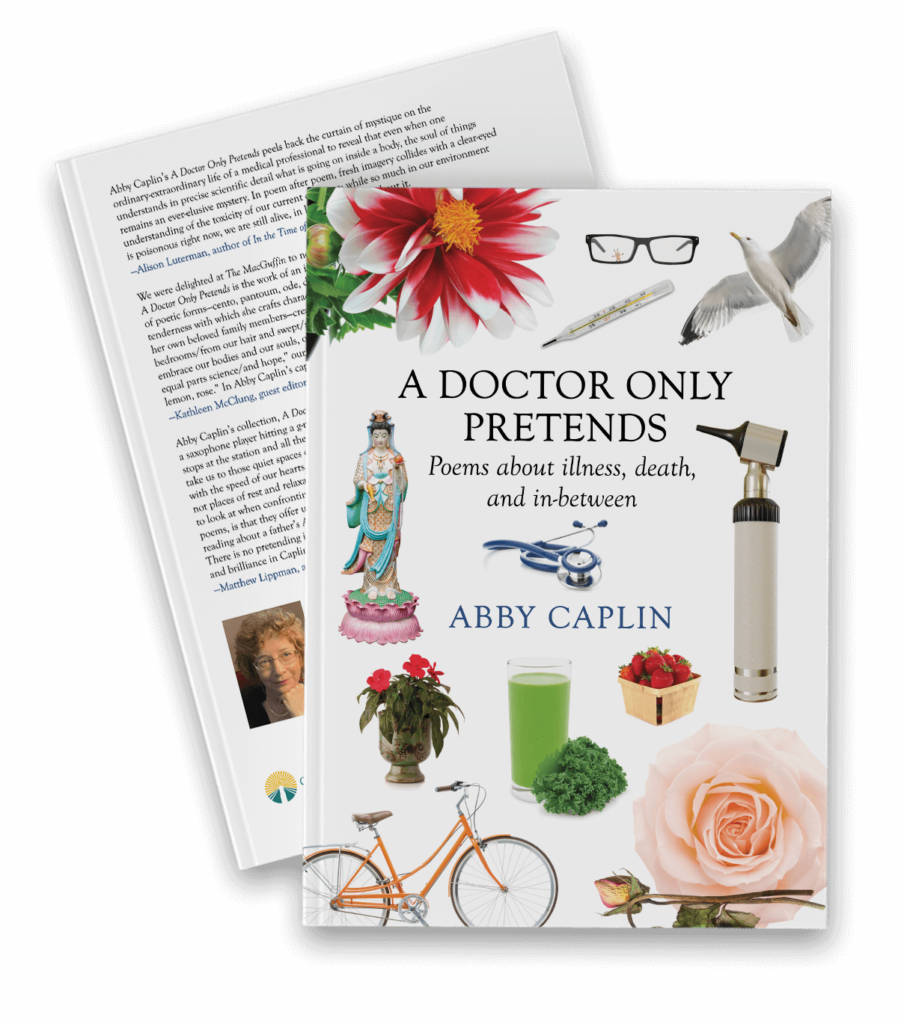Poems from the in-between—where grief, humor, and hope coexist.
ABOUT ABBY CAPLIN
Abby Caplin is the author of A Doctor Only Pretends: poems about illness, death, and in-between (Ocean Light Press, 2022), praised by Tikkun Magazine and Delmarva Review. Her forthcoming second collection explores climate change and human fragility.
Her poems, which move between humor and gravity, have appeared in more than 150 journals and anthologies, including AGNI, North American Review, Salt Hill, The Southampton Review, Spoon River Poetry Review, and Tikkun.
Caplin’s work has received nominations for the Pushcart Prize, Best New Poets, and Best of the Net. She was First Honorable Mention in The MacGuffin’s 27th Poet Hunt, a multi-year prizewinner in the Soul-Making Keats Literary Competition, and a finalist for The Poetry Box Chapbook Prize (2024) and the Rash Award in Poetry (2018), among others.
Based in San Francisco, she is also a retired physician and mind-body medicine practitioner with a master’s degree in Integral Counseling Psychology from the California Institute of Integral Studies.
She has studied with poets she deeply admires, including Brian Tierney, Kathleen McClung, Alison Luterman, Erin Redfern, Billy Collins, Naomi Shihab Nye, Kevin Young, Dorianne Laux, Gregory Pardlo, and Rowan Ricardo Phillips.
One collection. Two wonderful reviews. A lifetime in the making.
“A Doctor Only Pretends is grounded in a voice that sings. It’s lyrical in its sonic quality and it bellows the backbeat of the heart. We want to live when we read and hear these poems…”
—Matthew Lippman, Tikkun Magazine
“Abby Caplin knows of suffering and chronic illness firsthand, from her medical practice, her aging parents, and her own suffering from autoimmune disease.
The poet’s voice is not pained or self-pitying. Her poems in this collection are beautiful to the ear and marked by wisdom and acceptance.”
—Janice F. Booth, Delmarva Review

